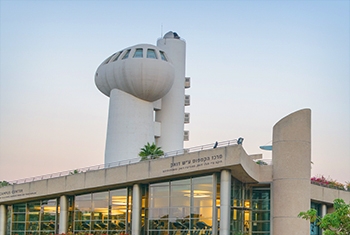Stem cells are early-stage cells that have the potential to develop into any type of cell. Each cell has a different genetic makeup, depending on its function: muscle cells, blood cells, brain cells—all have different functions. The medical implications of stem cell research are far-reaching. Being able to take a group of these cells that contain the building blocks necessary to become any cell in the body creates the real possibility for scientists to fabricate any healthy tissue to replace damaged or diseased organs. With perhaps some of the most versatile applications in regenerative medicine today, stem cell research is now central in research on heart disease, cancer, bone marrow transplants, and beyond.
Since its establishment in 2006, The Helen and Martin Kimmel Center for Stem Cell Research has supported scientific projects and collaborations focused on the biology of stem cells and its potential to improve clinical care and to benefit lives all over the world.


